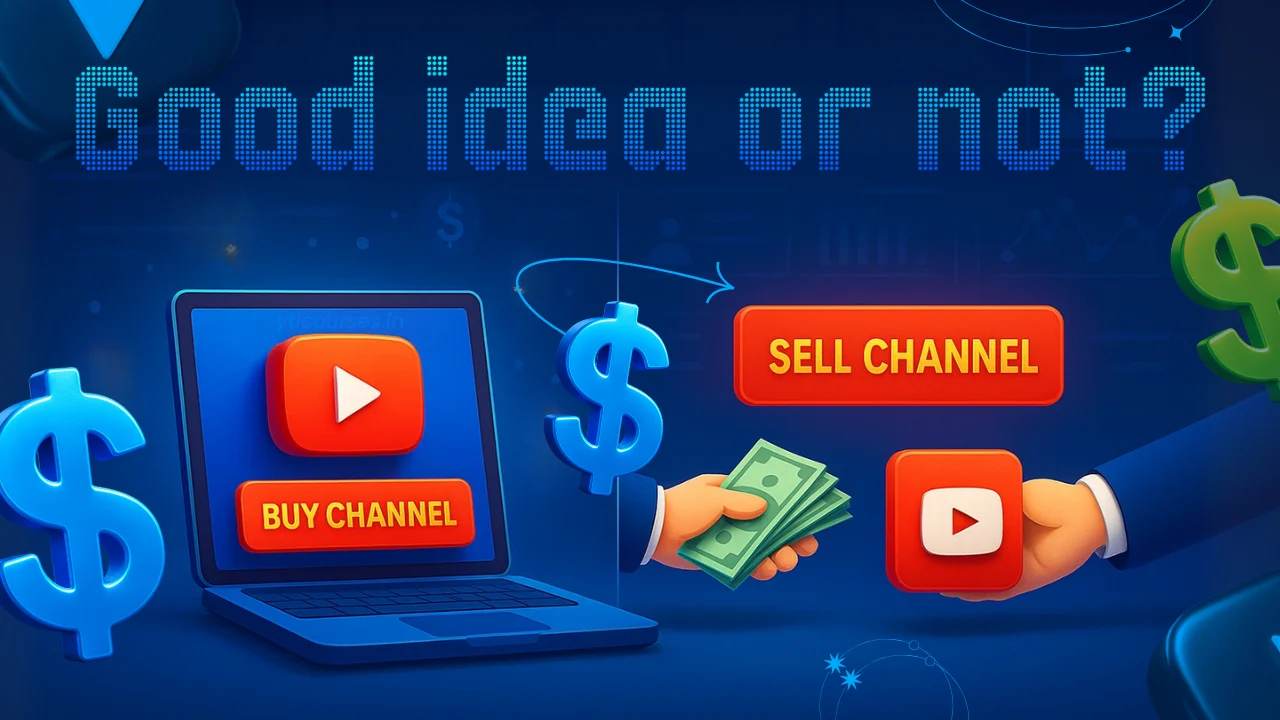July 1, 2025

YouTube isn’t just a platform for uploading videos it’s an entire ecosystem that offers real earning potential, brand growth, and influence. As a result, the trend of buy or sell a YouTube Channel has gained popularity. But is this practice wise, ethical, or even effective in the long run? Let’s dive into the pros, cons, and everything in between.
For buyers, purchasing a YouTube channel is like stepping into a ready-made store. It offers instant access to monetization, an existing subscriber base, and a portfolio of performing videos. Instead of spending months building a new channel from the ground up, buyers hope to save time and skip the early struggles of audience building.
Sellers, on the other hand, might feel they’ve reached the end of their journey with the channel. Some may want to pursue new passions, while others may simply see it as a good opportunity to turn their digital effort into real cash. In either case, the decision stems from a practical need whether it’s to accelerate growth or to cash out on past work.
Buying a YouTube channel comes with several advantages, especially for marketers or businesses who want to grow quickly on the platform. A well-maintained channel can bring you into the YouTube Partner Program immediately, meaning ad revenue and monetization are already activated. You also inherit valuable analytics, ranking videos, and SEO history that can inform your future content strategy.
If you’re entering a niche similar to the existing channel, the transition can be smooth. You benefit from the trust and loyalty the audience has already developed, giving you a strong starting point for future videos. When done correctly, it can feel like inheriting a working business instead of starting one from scratch.
Despite the advantages, buying a channel is far from a risk-free strategy. The audience you inherit is loyal to the previous creator, not necessarily to the channel name or theme. If you fail to deliver content that matches their expectations, engagement can drop rapidly. Subscribers may unsubscribe or simply stop watching, which tells YouTube’s algorithm your channel is no longer relevant.
Another serious concern is the channel’s past history. If the previous owner used unethical tactics like fake subscribers, copyright-violating content, or misleading thumbnails, you could be inheriting a ticking time bomb. YouTube can take down or demonetize channels if it finds violations—even if you’re not the one who made them.
Moreover, YouTube’s policies emphasize authentic behavior. While they don’t outright ban the transfer of channels, any signs of manipulation or spam can trigger penalties. This makes it vital for both buyers and sellers to conduct thorough due diligence and stay within the platform’s guidelines.
Here are a few essential things you must check before buying a channel:
These checks help reduce the risk of buying a channel that may appear valuable on the surface but is unstable behind the scenes.
If you’re a creator thinking of selling your channel, the decision should go beyond financial value. A YouTube channel is more than a digital asset it’s often a personal journey, and it holds the trust of a loyal audience. Selling it to someone who misuses that trust could lead to backlash and loss of credibility, especially if your personal name or face is strongly tied to the channel.
However, if you’ve built a channel around a specific niche (rather than a personality brand), the transition may be easier. You can ethically exit the project, hand over the reins, and ensure the buyer continues to serve the audience well.
To protect yourself and the buyer, use:
Being transparent and professional benefits both parties and builds trust in this emerging form of digital business.
Buying or selling a YouTube channel can absolutely work if approached correctly. It’s not a guaranteed shortcut to success, but with proper research, planning, and alignment of goals, it can fast-track growth or provide financial returns.
The biggest mistake people make is underestimating the human side of YouTube. Subscribers are not just numbers. They follow personalities, value consistent content, and expect authenticity. If either party breaks that trust, the value of the channel collapses regardless of its subscriber count.
Buy or sell a YouTube channel isn’t a bad idea it’s just not a magic bullet. It’s a strategic move that, if done with awareness and ethics, can be incredibly rewarding. But like any business transaction, it requires caution, due diligence, and clarity on long-term goals. So, before you jump in, ask yourself: Are you ready to treat this not just as a purchase or sale but as a responsibility to an audience and a platform that values trust?
Also Join our WhatsApp Channel for quick updates and info.
The YTL Courses
Welcome to The YTL Courses, here you will get best category of digital products at affordable prices.
Please send your name and contact details if you have any query.
WhatsApp Us
🟢 Online | Privacy policy
WhatsApp us